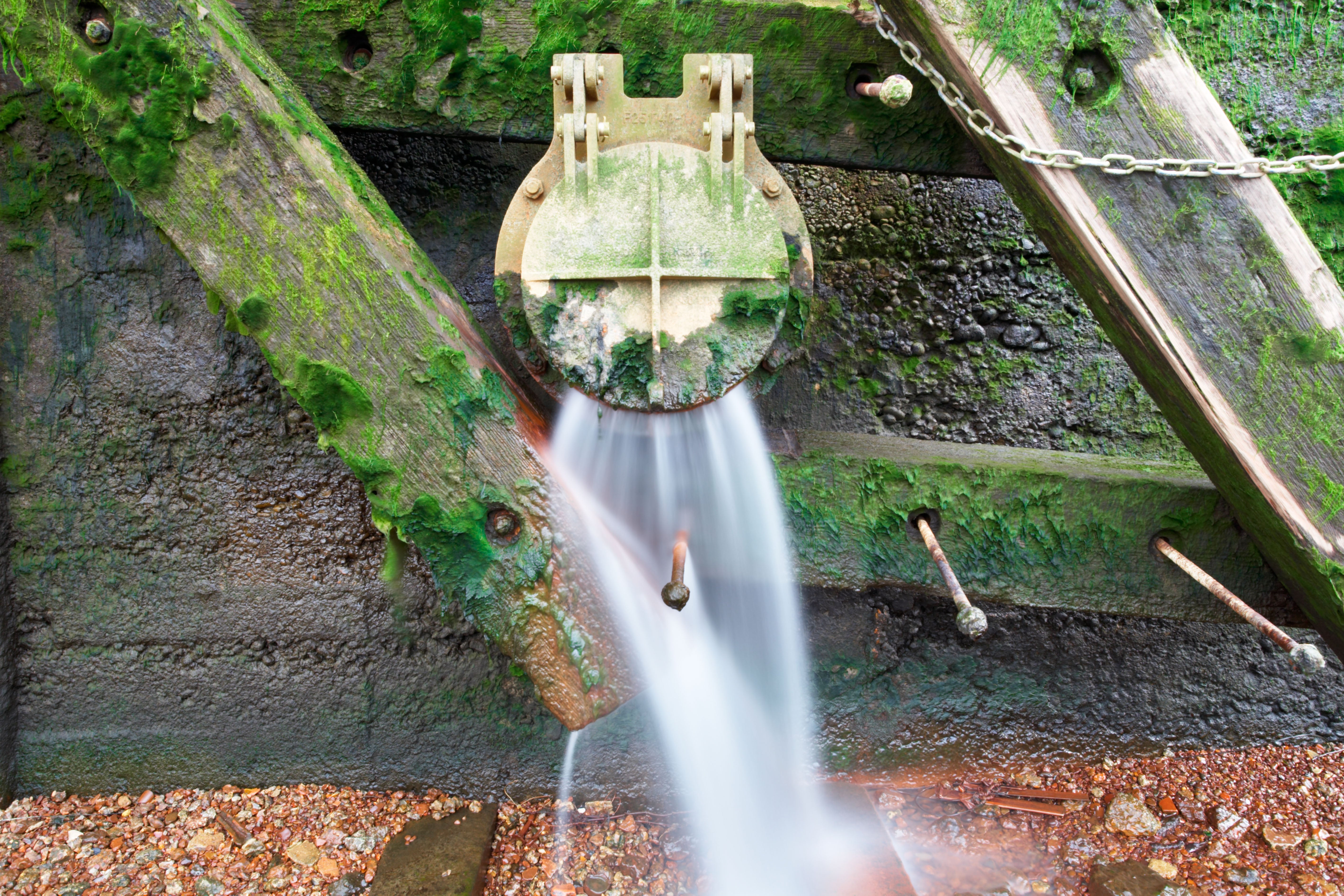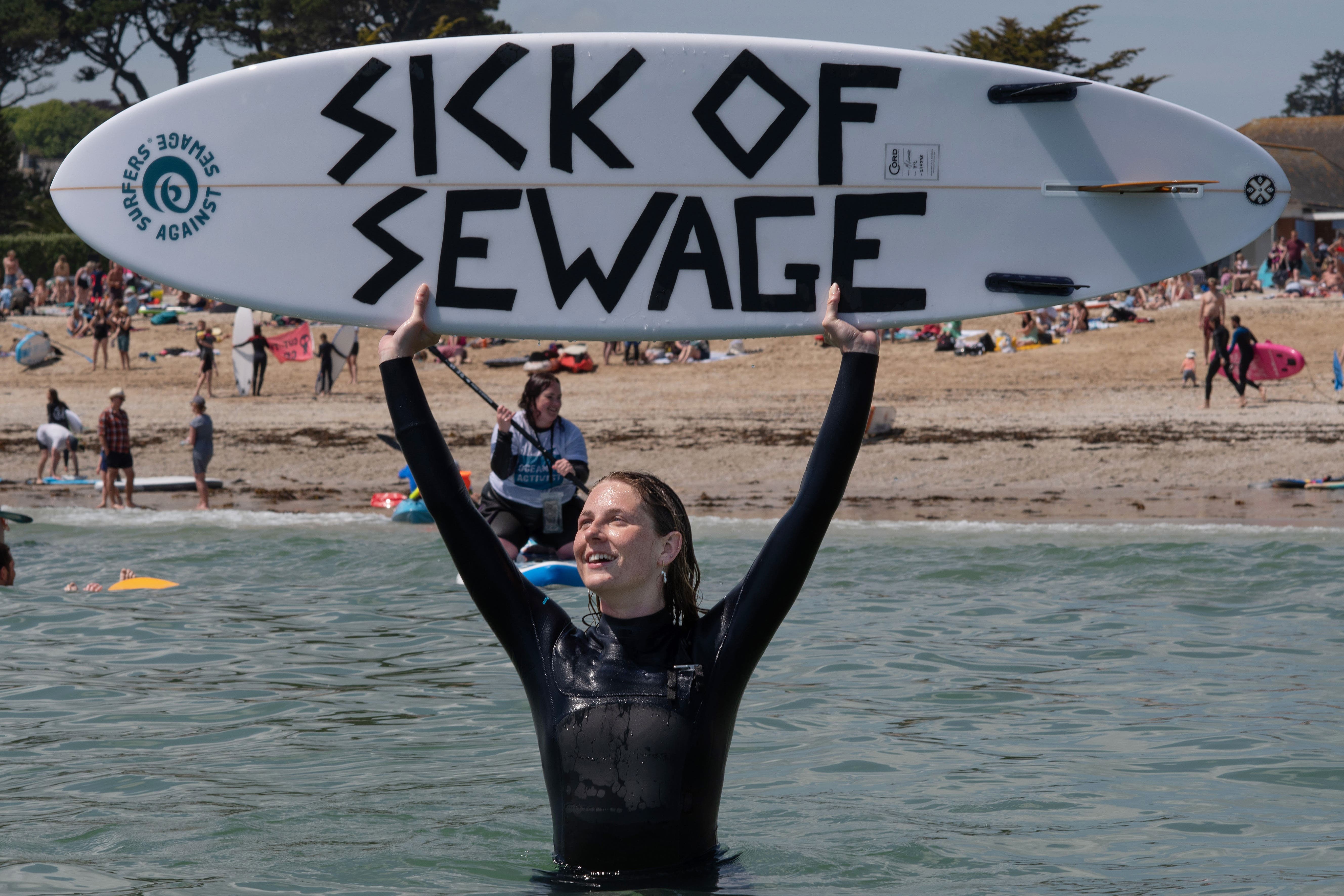ARTICLE AD BOX
Water company bosses who cover up illegal sewage spills could face up to two years in prison as pollution levels reach a decade-high in the UK’s rivers and seas.
Under the government’s landmark Water Act, executives who fail to meet the Environment Agency’s standards to protect the environment will also be banned from receiving their bonuses.
Despite widespread spills of raw sewage into waterways, no prison sentences have been handed to water executives since companies were privatised.
The new sentencing powers come after the charity Surfers Against Sewage received 1,853 sickness reports through its service app last year, with hundreds diagnosed with gastroenteritis and serious bacterial infections linked to pollution.

Multiple water companies have previously obstructed investigations and failed to hand over evidence related to spills, which has prevented crackdowns on any law-breaking.
Environment secretary Steve Reed said: “Bosses must face consequences if they commit crimes. There must be accountability.
“From today, there will be no more hiding places. As part of the Plan for Change, water companies must now focus on cleaning up our rivers, lakes and seas for good.”
England’s biggest water company, Thames Water, faces debts of £19bn and was responsible for almost 300,000 hours of raw sewage being pumped into waterways in 2024.
Its chief executive Chris Weston is £850,000 a year and receives a performance-related bonus of up to 156 per cent, taking his potential pay package to £2.25m.
Further north, United Utilities has faced claims that it failed to report more than 100m litres of raw sewage that it illegally dumped into Lake Windermere over three years.
Analysis found the company pumped between 143m to 286m litres of waste into the lake between 2021 and 2023. Its chief executive Louise Beardmore defended her £1.4m salary, which includes a £420,000 bonus, in February when questioned about the provider’s sewage dumping.

The new powers will mean the worst offenders will pay for the cost of criminal investigations into their wrongdoing.
Until now, only three water company officials have been criminally prosecuted for obstructing investigations by the Environment Agency, with no fines issued.
However, offences will now be tried in both the crown and magistrates’ courts and will bring water regulation powers in line with other sectors, such as those covering health and safety investigations.
Campaigners have long called for reform, from overhauling regulators to nationalising water companies, while the Office for Environmental Protection (OEP) watchdog is investigating whether the Government and regulators failed to comply with key laws on water quality.
Water UK, which represents water and sewage companies in England and Wales, has called for a third-party monitoring system, arguing firms should no longer be allowed to monitor their own sewage pollution levels.

This recommendation follows long-time claims from campaigners that the current self-reporting model has often hidden the true scale of water pollution in the UK.
Labour MP Clive Lewis, in collaboration with the think tank Compass and campaign group 38 Degrees, has handed in a petition signed by over 110,000 people to the Department for Environment, Food and Rural Affairs demanding that public ownership of water be put back on the table.
The Norwich South MP said: “We are now living in worsening times of climate and environmental breakdown, intensifying global political instability, price-gouging, corporate profiteering and greedflation.
“If we're serious about protecting the many from escalating uncertainty and threats, and stem surging support for the authoritarian right, we must start now to fundamentally reprogramme our economy and politics.”
Philip Duffy, chief executive of the Environment Agency said: “The Water (Special Measures) Act was a crucial step in making sure water companies take full responsibility for their impact on the environment.
“The tougher powers we have gained though this legislation will allow us, as the regulator, to close the justice gap, deliver swifter enforcement action and ultimately deter illegal activity.
“Alongside this, we’re modernising and expanding our approach to water company inspections - and it’s working. More people, powers, better data and inspections are yielding vital evidence so that we can reduce sewage pollution, hold water companies to account and protect the environment.”









 English (US) ·
English (US) ·